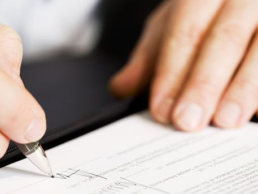International Buyers Guide
Foreign Ownership
As of April 21, 2017, any individual who is not a Canadian citizen or permanent resident of Canada (including corporations and trusts) is subject to a Non-Resident Speculation Tax of 15% of the purchase price (paid at closing) for properties purchased in Toronto, Brant, Dufferin, Durham, Haldimand, Halton, Hamilton, Kawartha Lakes, Niagara, Northumberland, Peel, Peterborough, Simcoe, Toronto, Waterloo, Wellington and York.
Financing
While Canadian lenders do finance the home purchases of non-residents, they usually require significantly larger down payments. Most of our non-resident clients are required to have a 35% downpayment. Lenders will require you to verify your income and creditworthiness and prove that you can pay the mortgage. Also, mortgage interest rates may be higher than what Canadian residents would pay (though in our experience, they are still very attractive rates). It’s important to connect with a mortgage broker or your financial institution to find out your qualifications.
Taxes
As with any investment, it’s important to contact your accountant to understand fully how the purchase or sale of a property in Canada will affect you from a tax perspective. The following is meant to be a guideline only:
Non-Canadian citizens and non-permanent residents of Canada buying a property in the Toronto region must pay a 15% tax on closing.
When buying a property in Toronto, foreign buyers pay the same land transfer taxes as Canadian residents. First time home buyers who plan to use the purchase as their primary residence may be eligible for land transfer tax rebates.
There are also tax implications for non-residents when selling a property. There are forms, processes, and penalties for not complying with the Canada Revenue Agency (CRA)’s rules.
Insurance
It’s sometimes difficult (and more expensive) for non-residents to obtain insurance for an investment property. Given that proof of home insurance is required to obtain a mortgage, this is an important factor to consider. If you’re looking to buy a Toronto investment property, make sure to get insurance quotes and information before making an offer.
Making an Offer
In this day and age, signing the legal documents to make an offer on a house or condo can be done digitally, and with Skype and Facetime, it’s easy to get the same price advice and information from your REALTOR that you’d get if you were physically in Toronto. Many lenders require a foreign buyer to sign the mortgage paperwork in person (though this can be avoided with an executed Power of Attorney).
Choosing a REALTOR
Look for a real estate agent who has experience selling properties to non-Canadians and can refer you to property managers, lawyers and appropriate lenders for your circumstances. If you’re looking to buy a Toronto property while overseas (vs. during a trip to Toronto) look for a REALTOR who is experienced in previewing properties for absentee clients and who is familiar with the tools and technology (especially video) to ensure a smooth process.
We work with a lot of overseas clients and have perfected a process to video and communicate with our buyers about potential properties to eliminate the need to be physically in Toronto to choose a property to buy. We have a dedicated team of lenders, lawyers, and insurance brokers who help our non-resident Buyers in Toronto.
Steps to Buying a Home
Buying a home can be overwhelming. You could be a first time home buyer, investor, moving up to a bigger home, this guide will help you through all the steps.
- Get pre-qualified for a mortgage. Talk to mortgage brokers, banks, etc.
- Go online and view homes in person.
- Make an offer, be ready for negotiations and possibly bidding wars
- Know your closing costs
Financing
Don’t search blindly. The biggest mistakes i’ve seen is buyers think they know what their budget is when really their purchasing power might be much higher or lower. By doing this as your first step, you can potentially save yourself thousands and hours. Get Pre-Qualified!
Step 1 – Get Pre-Approved for a Mortgage
The first step to buying a house or condo in Toronto or anywhere in the world should be finding out how much your bank is willing to lend you. When you pre-qualify for a mortgage, your lender will look at your income, your debts, your credit history, and your down payment. This mortgage pre-approval is usually valid for 90 to 120 days which includes an interest guarantee.
One thing to note, a pre-approval is not a guarantee that a lender will lend you a certain amount of money for any home. Lenders want to know that the home they are purchasing with you (by lending you the money) is worth what you paid. Banks generally require an appraisal of a home before they advance the mortgage money.
Getting pre-approved will ensure that you know how much mortgage you can get, which in turn will help you know what price range of homes you should be targeting in your search. It allows you to focus your house-hunting efforts and eliminates the risk and uncertainty of financing once you find your perfect home.
Step 2 – Mortgage Decisions
Mortgages can seem intimidating, especially for first-time buyers. Once you’ve qualified for a mortgage, there are some basic decisions you will have to make before you take possession of your house or condo: Mortgage term, amortization, interest rate and type of mortgage. Your mortgage broker should be able to help you guide you through all the different types of mortgages.
Mortgage Term and Amortization
The mortgage term and amortization period affect the amount of money you can borrow (and thus the price of the home you can buy), and dictate how much your monthly payment will be.
Mortgage term
This is the amount of time a lender will loan you money for – typically from 6 months to 5 years. When the term is up, the remaining amount is payable in full unless you arrange new financing for another term.
Amortization
The longer the amortization period, the lower your individual payments will be – but this also means you’ll be paying more in interest. Lenders calculate or amortize, the mortgage payments over a much longer time, often as long as 30 years.
Payments
Most mortgage payments consist of two parts: principal and interest. Each payment reduces the balance owed on the mortgage by the portion of the payment that is credited to the principal. Over time, the proportion of your payment that reduces the principal balance will increase. The faster you can pay down the remaining balance, the less total interest you’ll pay. There are many ways you can pay down your mortgage faster, from accelerating your payments (e.g. paying biweekly instead of twice a month, for 26 payments per year instead of 24) to making lump sum payments on your mortgage; your lender can help define the right strategy for you.
Interest Rates
The interest rate is one of the biggest contributing factors to how much you end up paying for your home, both on a monthly basis and over the life of your mortgage. Interest is the cost of borrowing money. Interest rates fluctuate with the economy. The interest rate you commit yourself to at the beginning of the term can have a significant effect on the amount you pay each month for your mortgage. There are two basic types of interest rates used in mortgage products: fixed-rate and variable-rate:
Fixed-rate mortgage – Essentially, this means committing to a single interest rate that will not change for the term of your mortgage. This strategy locks in how much of your monthly payment repays the principal vs. going to interest. Fixed-rate mortgages are great in an economy where interest rates are going up, as you never have to risk paying higher interest rates.
Variable-rate mortgage – There are two types of variable-rate mortgages. With the first kind, the amount of your monthly payment fluctuates with the bank’s prime interest rate – if rates go up, your payment increases; if rates go down, your payment decreases.
Step 3 – Choose a Lender
There are many types of lenders and mortgages out there. It’s a good idea to talk to at least three lenders:
- Your own bank. They have your bank accounts, credit cards and investments so they should be motivated to give you a good rate.
- A mortgage broker. Mortgage brokers work with a lot of different lenders and will go to them on your behalf to find the best mortgage rate and terms. Usually, broker fees are paid by the banks, so it’s a good way to comparative shop without having to do all the leg work yourself.
Househunting
This is the fun part! Almost everyone I meet now spends time searching for properties online and attending open houses! The dream of yours forever home!
First Things First – Develop your Wish List
There are over 100s of criteria out there when searching for a home. You need to create a list of what you want and what you need. How many bedrooms do you need? Open Concept? Separate Entrance? Location? Almost everyone needs to compromise on something, and it usually comes down to 3 things: size, location, and price.
What’s most important to you? Would you rather live in a bigger house or closer to downtown? Are you OK spending more money for a renovated house or could you buy a cheaper house and do the renovations yourself? Would you consider living on a busy street to more affordably be in a better neighborhood with access to better schools?
Step 2 – Pick Your Team
This will likely be the biggest purchase you’ll ever make! Don’t worry, you don’t need to do it alone. There are professionals who will be able to help you throughout the process. You will need a lender/mortgage broker who will guide you through your financing options, a lawyer to help with reviewing legal documents, and a real estate agent who will help ease your search process. There are thousands of professionals out there, so ask your friends and family for recommendations, do your research and don’t be afraid to interview multiple people.
Step 3 – The Search
94% of Canadians search for their homes online.
Tips for looking for a home online:
- Unfortunately, photos are not always a representation of what the home actually is.
- Descriptions can be overly exaggerated to sell the property.
- Asking prices of the home may not always be what the market value of the home. In a hot market, often homes sell for more than the listing price.
- If you’re shopping for a condo, keep in mind that what’s included in the maintenance fees varies from building to building, so it isn’t easy to compare condos. A lower maintenance fee might still mean more monthly costs if it doesn’t include heat and electricity.
Step 4 – House Hunting in Real Life
You can visit homes for sale in real life with your real estate agent or by attending an open house. Keep in mind that not all properties will have open houses, so working with a real estate agent you trust the only way to guarantee that you’ll be able to see the houses or condos you want to see (and on your schedule!).
Tips for looking at homes in real life:
- Toronto is a big city, and if you’re like most people, you have a few target neighborhoods. Try to focus on one neighborhood at a time.
- Wear slip-on/slip-off shoes. Seriously. You’ll be taking your shoes off dozens of times, so save yourself the hassle of lace-up shoes.
- Don’t just focus on the house or condo, focus on the neighborhood. Drive around the neighborhood. Locate the schools, parks and grocery stores. Take a walk down the street and check out the neighbors. Make a point of going to a cafe, restaurant or pub in the area.
- Vary the time of day that you house hunt. Everything looks better when the sun is shining, but it’s important to get a feel for the house or condo and the neighbourhood during the day AND at night.
- Experience the bad with the good. Every neighbourhood has its drawbacks, so make a plan to experience them. Thinking of buying a house near the railroad tracks? Check it out during rush hour when most of the trains are running.
- Take notes and photos. It’s surprising how quickly you can forget the first house or condo you saw.
- See past the gross. You’ll probably be surprised to find out how some people live, but don’t let someone’s bad decorating styles, outdated tastes and lack of housekeeping get in the way of finding your perfect Toronto house or condo.
- Don’t fall in love with the seller’s stuff. This happens all the time and that beautifully staged condo won’t look nearly as great with all your IKEA stuff in it. Try to imagine your furniture and style.
How I can help with your search?
- I will help you match what you want with the greatest opportunity for ROI. Together we’ll examine your needs, wants and must-haves to create a picture of your ideal home or investment property.
- I will stay on top of new properties in the best Toronto neighbourhoods as they come on and off the market. We’ll send you daily listings of what’s available and monitor what’s happening, as it happens.
- I will be your house-hunting partner on YOUR schedule. We can take you to see any property that’s for sale and sometimes even ones that aren’t.
- I can save you time. We can preview properties on your behalf and screen what is or is not for you, saving you time and hassle. I can send you video profiles of what we’re seeing – or better yet, you can follow us streaming live on the web.
Making an Offer
You have found the home you want! The offer process is both exciting and nerve-wracking. We begin by drafting the Agreement of Purchase and Sale. This is a legally binding document which contains everything from the price you are prepared to pay, to the inclusions you want (washer/dryer, big screen TV), to your ideal closing date (the date you take possession), to conditions that need to be met for the deal to go through. Once you’ve submitted your offer, the seller can accept it, reject it or sign back a counter offer. During these back-and-forth negotiations, you may need to compromise on small things, but a good real estate agent will work hard to get you what you want. And if you’re in a bidding war, make sure you know the facts about Bidding Wars and How to Win in Multiple Offers.
Meet Conditions and Provide Deposit
Conditions are requirements within the Agreement of Purchase and Sale that must be met for the deal to go through. These are the most common conditions which you might include: financing condition, lawyer review of the status certificate in a condo, or a home inspection. And of course, you’ll need to submit a deposit–in Toronto, typically around 5% of the purchase price, which is held in trust until close. Once the conditions have been met, the agreement is firm, and now it’s just a matter of waiting for your closing date.
Closing
Once you have a firm deal (both you and the seller have agreed on price and agreement terms, you’ve submitted a deposit, and there are no more conditions to waive), the closing process starts. This will require you to be in close contact with your lender and your lawyer – they’ll need lots of information, and of course, money, from you.
The few days before you take possession are the most critical – you’ll need to sign a lot of paperwork, provide a certified cheque for the balance owing and of course, pick up your keys.
Closing is the point at which the ownership and possession of the property are transferred from the Seller to you. It takes place after all legal and financial obligations have been met. Closing the purchase will be a team effort: in addition to yourself, your lawyer and your lender will all be involved in helping close the deal.
Costs of Buying a Home
Some of the things you can expect to pay are:
- Down payment (less any money you have already provided as a deposit)
- Land transfer taxes (If you buy a property in Toronto, you will need to pay a municipal land transfer tax in addition to the land transfer tax in Ontario, click here to calculate)
- Lender fees, if applicable (appraisal fees, application fees, etc.)
- Adjustments (the seller may have pre-paid taxes, utilities or other expenses past the closing date which you will need to reimburse during the closing process)
- Legal fees (plus applicable taxes)
Your lawyer will calculate the final amount owing, and you will need to provide him/her with a certified cheque for the full amount before the property comes into your possession.


